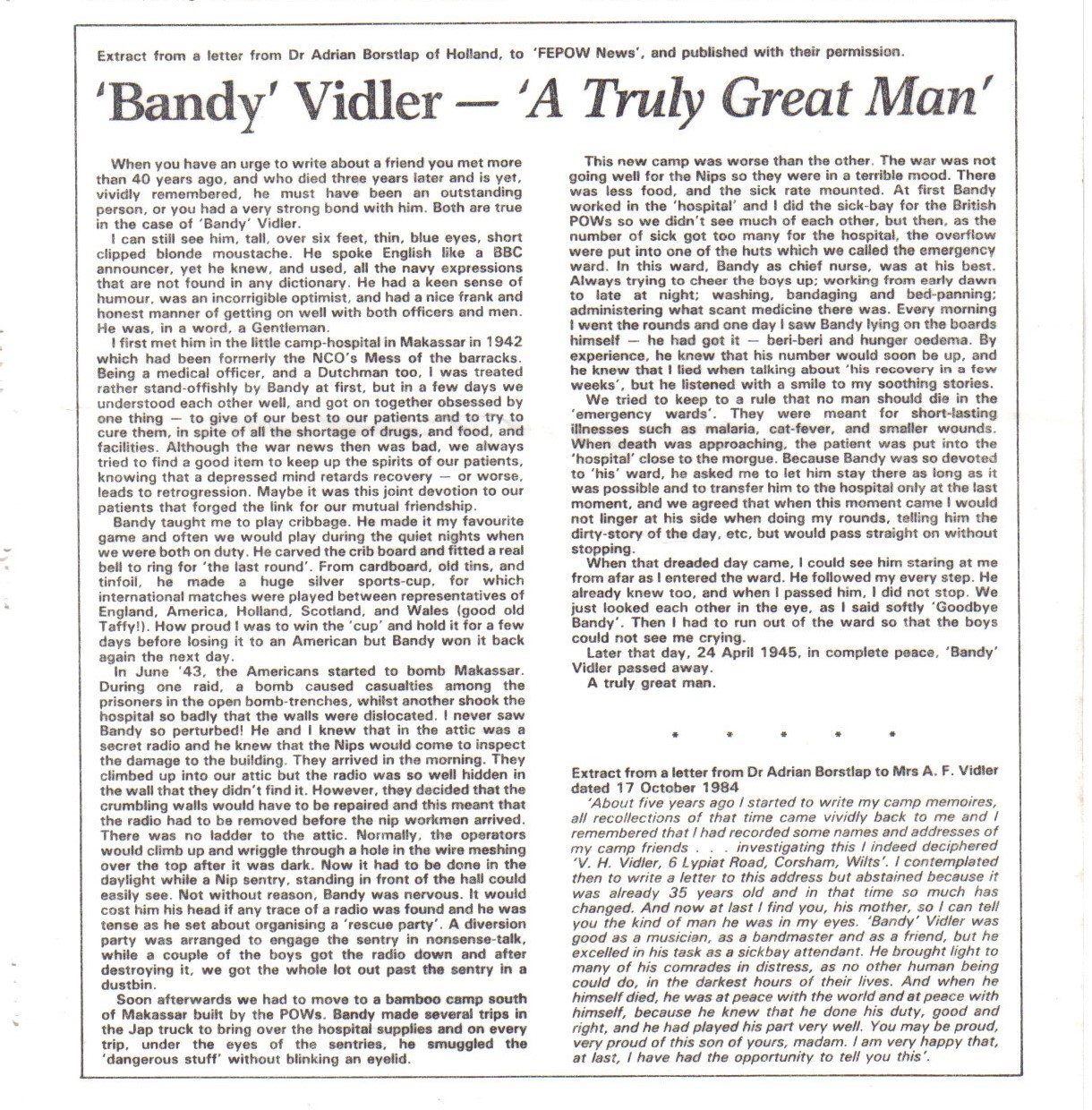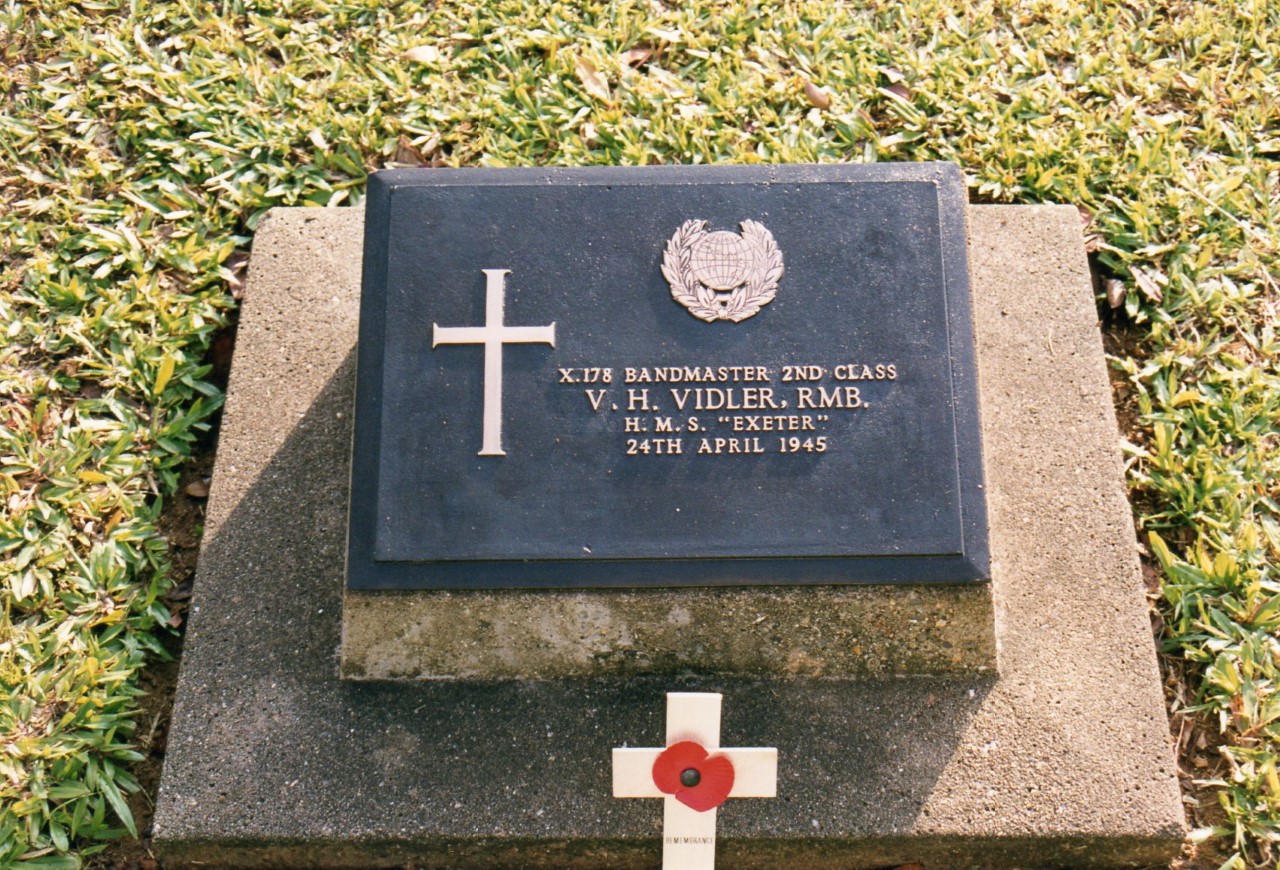Tell us your stories or those of your family members who served during this time
The following link is written by Cecil Rowse. My Grandad Arthur Douglas Marsh known as Dougie is mentioned by Cecil under the title Practically Starved.
My Grandad like so many died young after surviving the camps and sinking of Exeter. He also like so many very rarely talked about his experiences, only to say he had a best friend and they kept each other alive in the camps.
My Grandmother very sadly in her grief when my Grandad died in 1974 destroyed all memory of my Grandad, medals and photographs all were thrown away.
All my life ( I never knew my Grandad ) I wondered about my Grandad's HMS Exeter story. Something totally incredible happened several years ago when I contacted the wonderful Tom Jowlett of HMS Exeter and Macassar reunion group. He put my Grandad's name on the invites for the next reunion asking if anyone recalled my Grandad. I was told there was very little hope as only a few men were still alive.
Out of the blue one day I received a phone call from Cecil Rowse's widow. She said "hello I would like to tell you that your Grandad saved my husbands life".
When Cecil became dangerously ill with Beri Beri my Grandad traded with a Guard his wedding ring for Vitamin B tablets saving Cecil's life. It is quite amazing that he was able to hide his ring from the Japanese as these poor men were only left in rags and all jewellery was taken.
My family and I went on to meet Cecil's wife and his three children and Grandchildren. They had always known about my Grandad but we had never known this story. It was fantastic to meet them.
Read the full story, Click Here
Jim London has a road named after him in Ontario, Ajax, Canada.
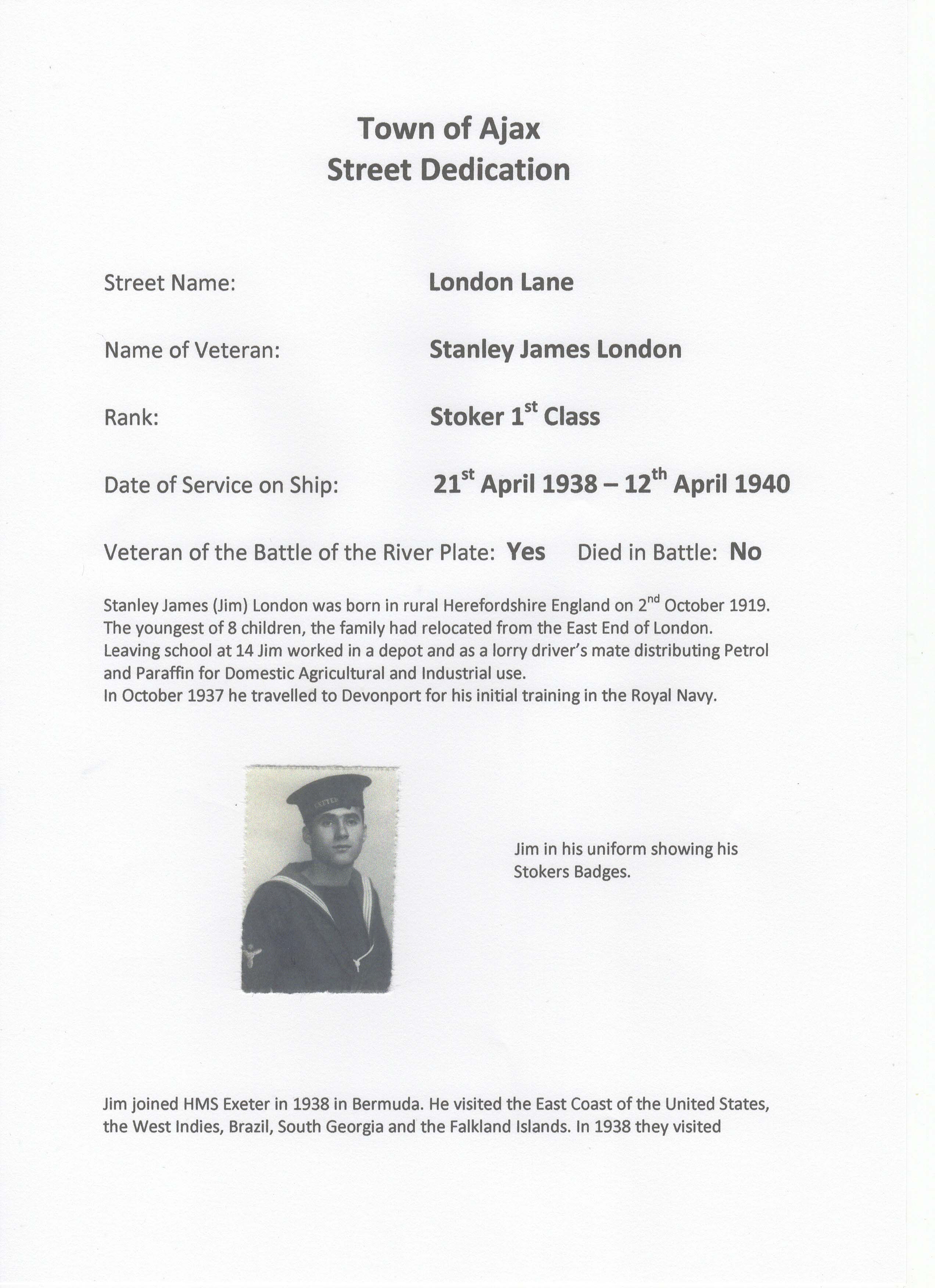
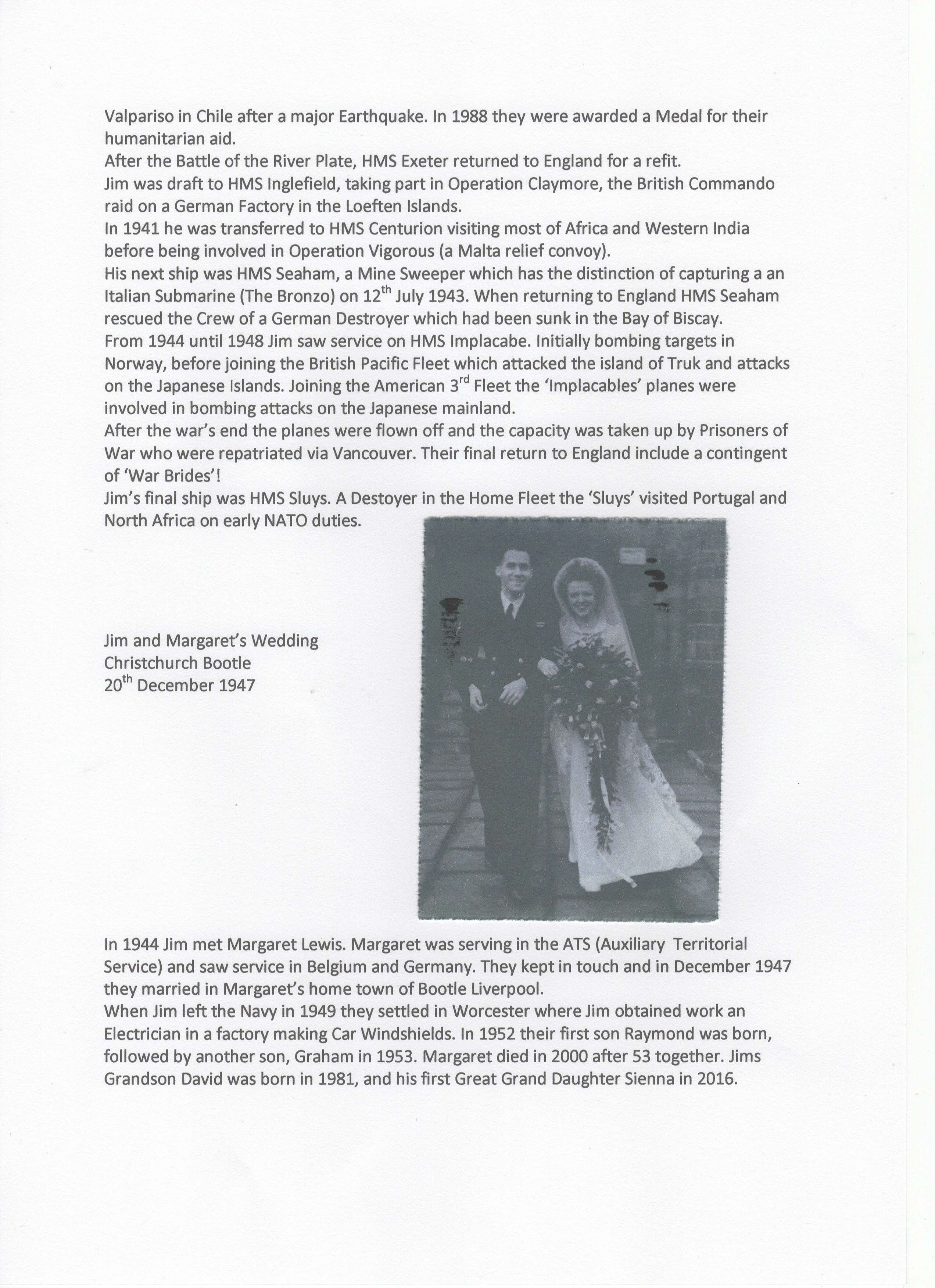
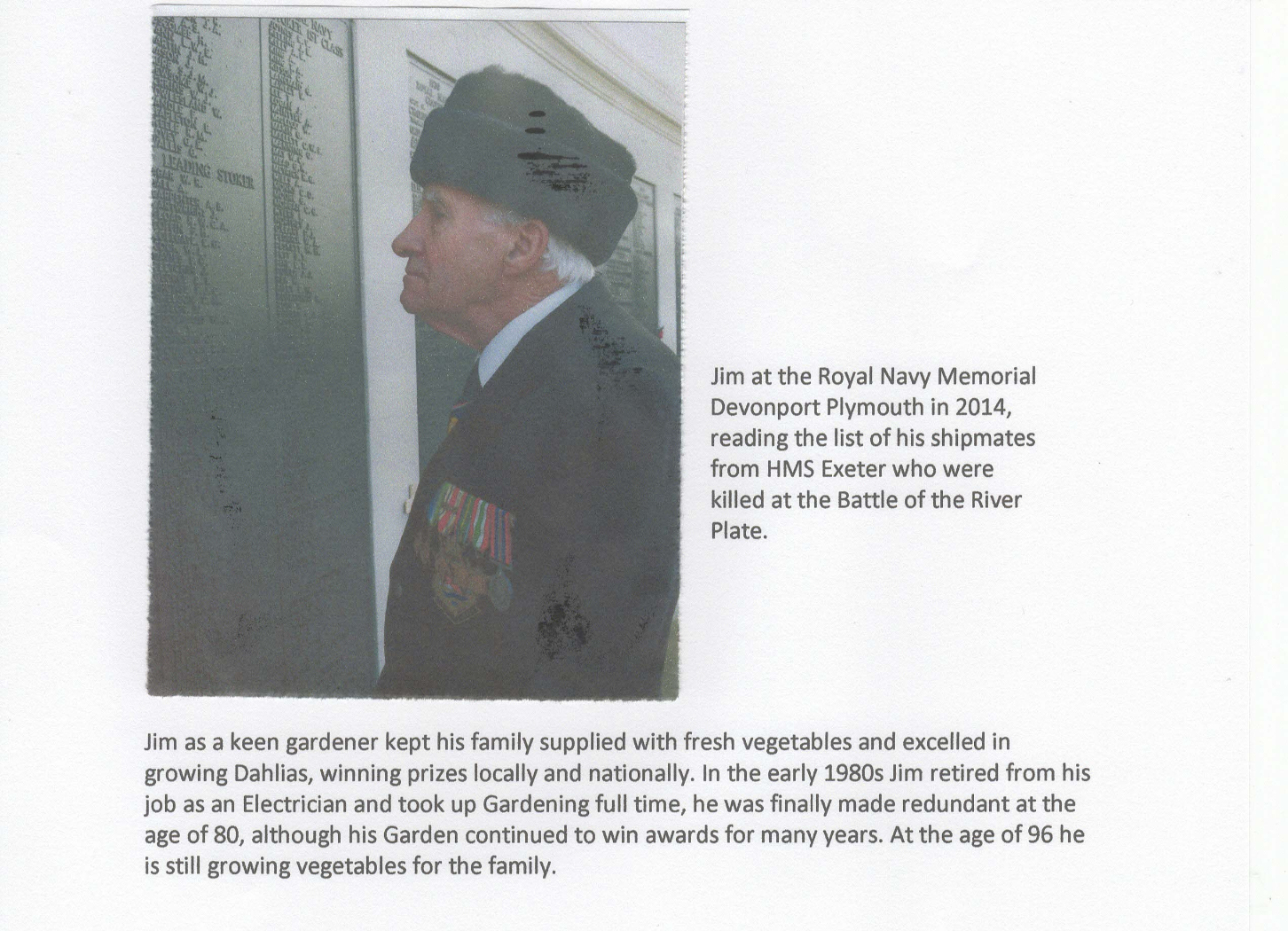
Jim with Rear Admiral Bennett and his name plate 2017
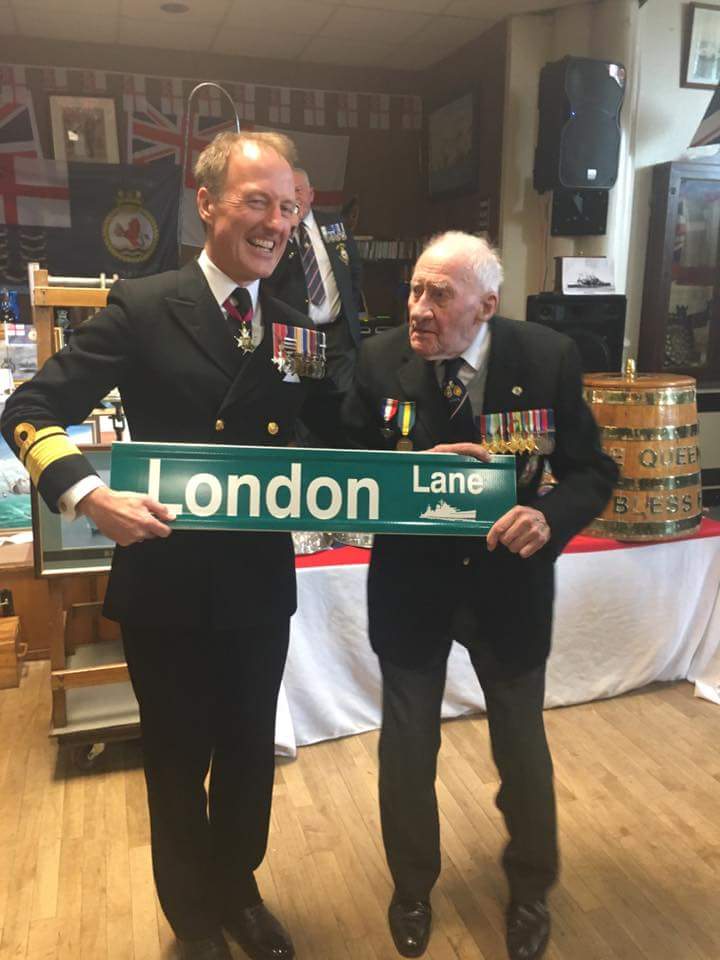
Mick Power who's father was on HMS Stronghold. Tells the Exeter Association how they had picked up survivors of MV Manchester and took them to Tjilitjap where they transferred them to MS Zaandam.
Both ships departed for Australia and were spotted by a Japanese Reconnaissance plane. A Japanese task force chased them but Stronghold was short on fuel and would never make it to Australia.
The Captain switched on the ship's lights at night hoping that the pursuing Japanese task force would follow them. The ruse worked and the Zaandam complete with over 900 refugees made it to Fremantle. Stronghold was not so lucky.
The task force of one cruiser and 4 destroyers caught up with Stronghold and fired a shell at them on average every 5 seconds for 90 minutes before the order to abandon ship was given. Of the 120 crew only 50 made it off and of the 50 only 30 would go on to survive their POW camp ordeals. (That's the short version!)
Below are a collection of photographs some are of his fathers personal collection, others have been gathered over the years from various sources including the Australian War Museum.
The signature pages are what my dad obtained at the liberation of the camp and there are a couple of Exeter names in there; my dad was on the Stronghold and survived.
The ones of the guards have taken Mick years to find - especially the one who is more than likely Yoshida as my dad used to call him a fat pig...... apart from Sumo wrestlers I have never seen a fat Japanese person! Mick think's that there are a lot of Exeter faces in those photos so he hope's that families can find there beloved relative among them somewhere.
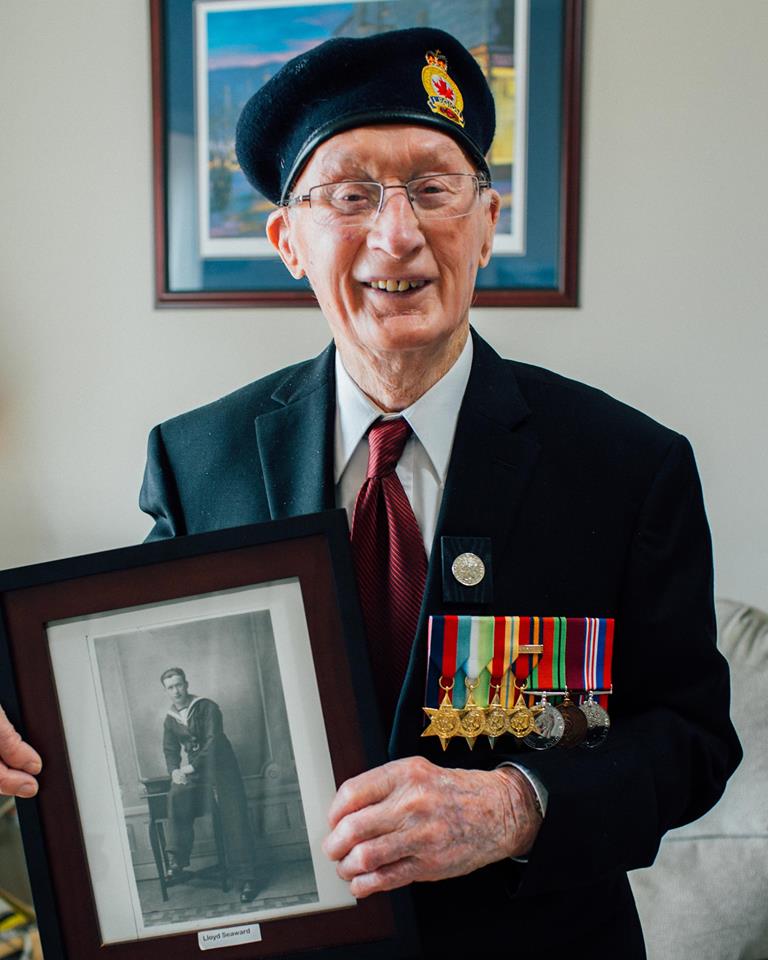
Lloyd Seaward
“You never talked much about death. That’s how you survived it all,” Lloyd Seaward explained. At 21 years old, Lloyd left Newfoundland to inevitably end up on another island: Japan. After spending 3 years in a prisoner of war camp and witnessing countless horrors of war, Lloyd still holds onto a promise he was unable to keep. Lloyd’s ship, the HMS Exeter was sunk by a torpedo in the Java sea. The fight for his life was only beginning as he was picked up by a Japanese ship and placed in a prisoner of war camp. The conditions of the camp still cause damp eyes for the 101 year old. Three men tried to escape but were caught, Lloyd recalled. “They beat them up and everything. In the end they made them dig their own graves and chopped their heads off with those long swords. They made us dig them up. They claimed they wanted the land for something. But they didn’t. They just wanted to let us know when we dug up the bones that we were going to get the same thing if we tried to escape.” The other enemy was malnutrition, causing a deadly condition known as beriberi. ”This Englishman and myself were real good friends. Anything he scavenged, he’d save some for me, and I would save some for him. Now he got beriberi... He asked me if I got back to England if I would go visit his wife and daughter. And I said yes I certainly would.” 152 of Lloyd’s shipmates would never see their loved ones again. When the war was over, a 78 pound Lloyd set out for Plymouth, to carry out his dying friend’s wish. When he arrived, he was shocked to find the city destroyed. Plymouth had suffered a staggering 1,178 deaths from the German bombing. His friend’s wife and daughter were among the fallen. War had erased the existence of the entire family. Perhaps nobody would remember them today if it weren’t for Lloyd. “Did I do OK?” Lloyd asks as the interview comes to a close. This catches me off guard. Lloyd might not have been able to fulfill his friend’s last wish, but by sharing his experiences he has made sure they will never be forgotten. What the two of them sacrificed for our freedom was passed to me, and now I’m honoured to pass it on to all of you. For the record, Lloyd, you did great.
Recollections of HMS Exeter (68) are included in an interview given to the IWM by Former Lt (Midshipman on Exeter's last voyage) Graeme Philip Allen (Sadly recently crossed the bar)
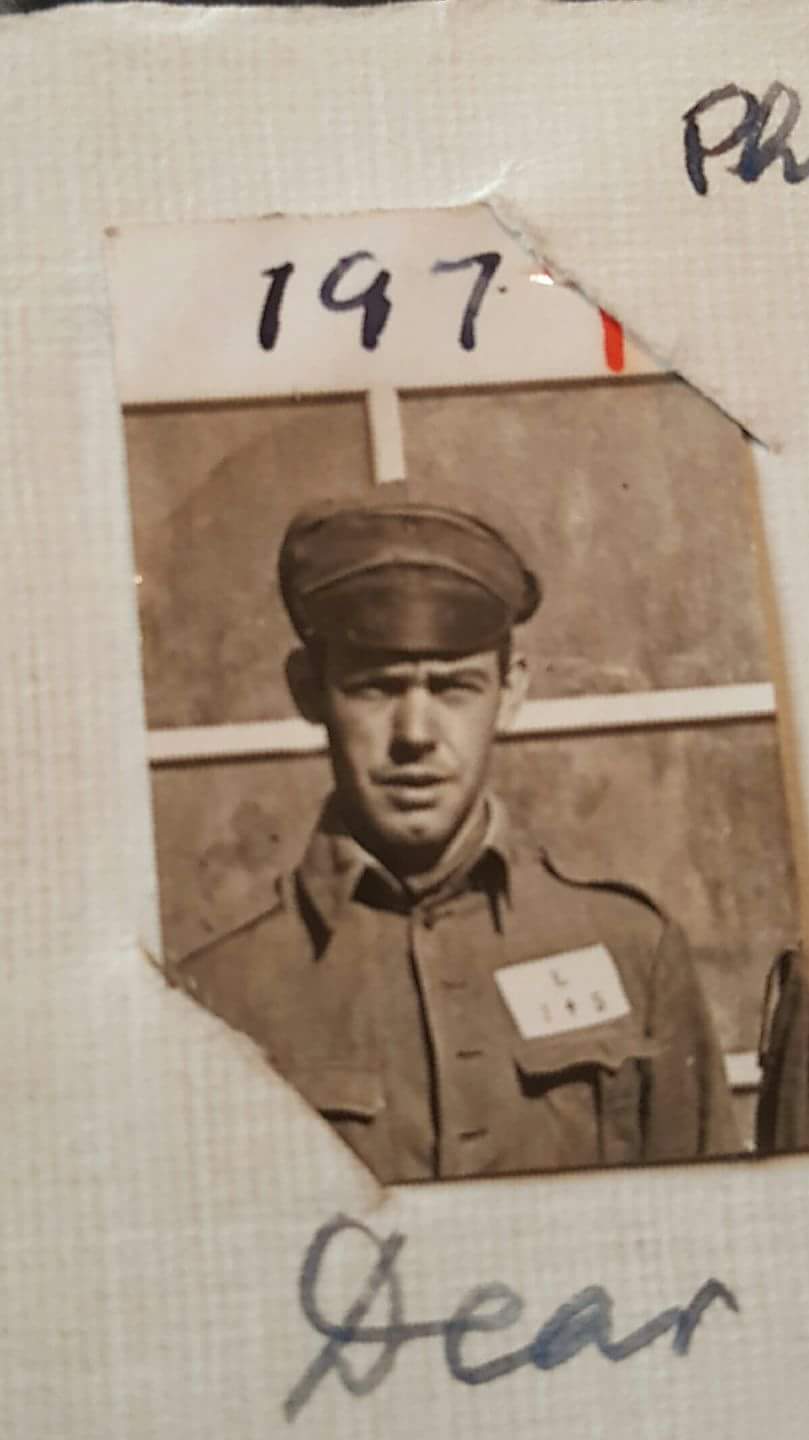
This is Paul Barsi's uncle William Thomas Phillips. Yeoman of Signals with the Exeter at the Battle of the Java Sea. He died as a POW in Fukuoka no 2 Japan.
Thank you Robert Graham, for some information on Captain Kudo Shunsaku, ("Kudo" is the family name). His ship, IJN Ikazuchi, "Thunder" and also, Lt Cdr Takeuchi Hajina, "warrior household" his ship IJN Inazuma, "Lighting".
Sir Sam Falle, from Frome, remembers the words of "Kudo" which Sam has never forgotten, when he was rescued in the Java Sea, "You are the guests of the Imperial navy, You fight bravely, I admire English Navy". If you look up on Google, BBC Somerset officer tells of extraordinary rescue, 18-12-2008.
"Japanese TV and Oniazuma present the story of IJN Captain Kudo Shunsaku, who risked the safety his destroyer and its crew to save 442 British sailors in the midst of battle during World War 2. Later in the war, the destroyer was sunk, sending most of the Japanese crew who had taken part in the rescue operation to their graves.
Captain Shunsaku, who had earlier been transferred to another command lived until 1975, but never told anyone about the event. It was only through one former British sailor, who had come to Japan to find and thank Captain Shunsaku, that the Japanese people were able to find out about the honourable actions of Kudo Shunsaku and his crew.
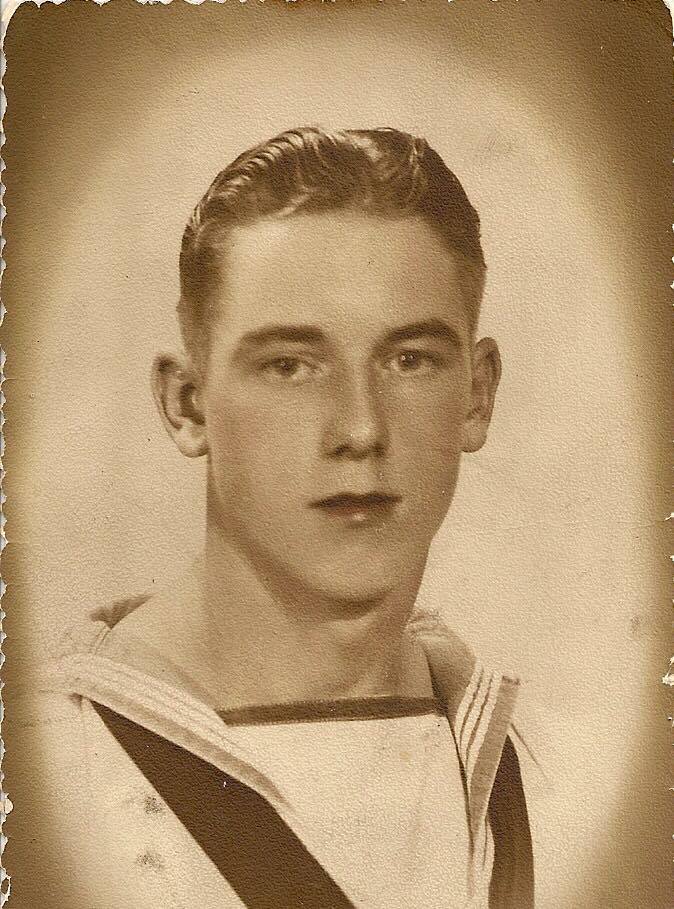
Norman Schofield was a telegraphist on the Exeter during the River Plate action. He spent the latter stages of the war in a Japanese POW Camp after the sinking of the Exeter in the Java Sea. Unfortunately, Norman died. His family found this account of the action while going through some of his old papers, Click Here for the full article.
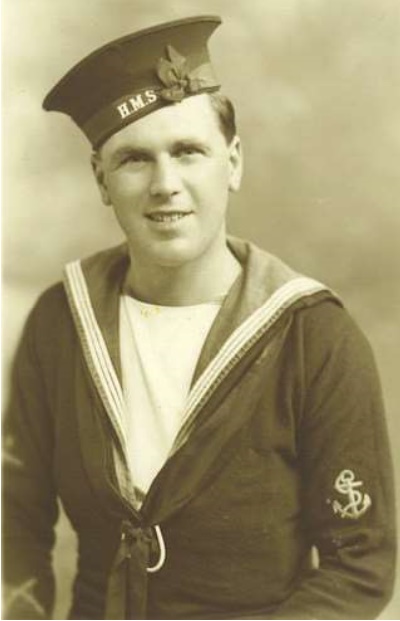
'Len' R.A. Fogwill served on HMS Exeter during the Battle of the River Plate, his son, Patrick, has published his account online to download and read for free, Click Here.
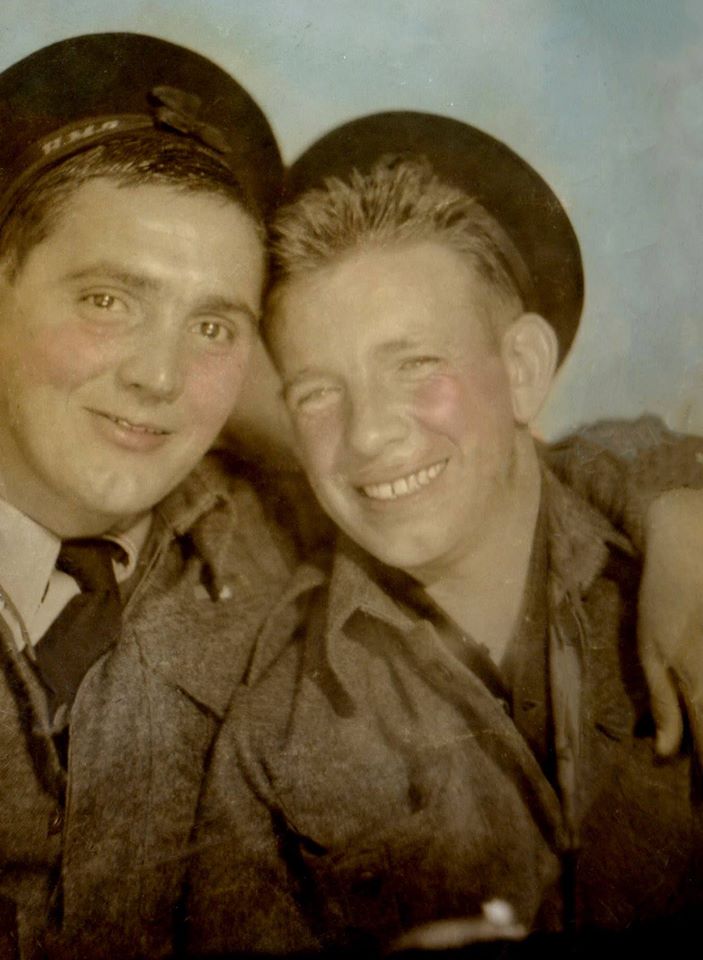
Barbara Bartholomew's father was taken to Makassar after HMS Exeter sank in 2nd Battle of Java Sea. He was only there from March to October when he was taken by Asama Maru to Nagasaki. He was in Fukuoka #2b for 2 years then Fukuoka #1 for 9 months from where he was liberated. I am compiling my dad's journey as a family history.
The photo above is of her dad - on the right and an Exeter mate.
Phil Trip allowed us to share a video about his Father Cyril Tripp.
The children of Japanese POW's are an international bunch many of us are. Piecing together the puzzles of our father's lives and many have had similar lives because of our Dads past.
To view the video: Click Here
© Video is Copyright to Phil Trip.
The story of RM Bandsman Vidler who sadly didn't return from his time as a PoW. Below the newspaper article and his headstone in memory.